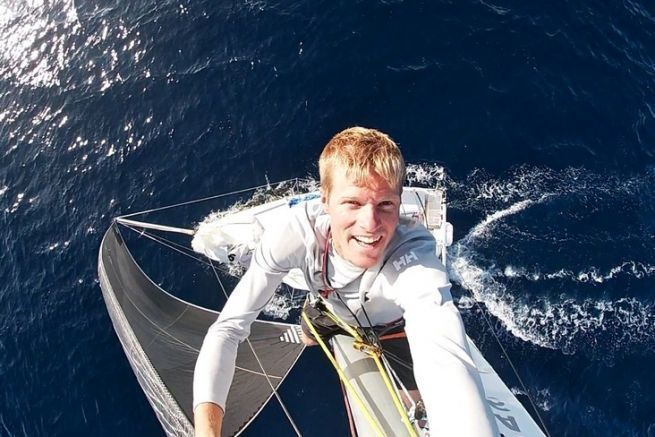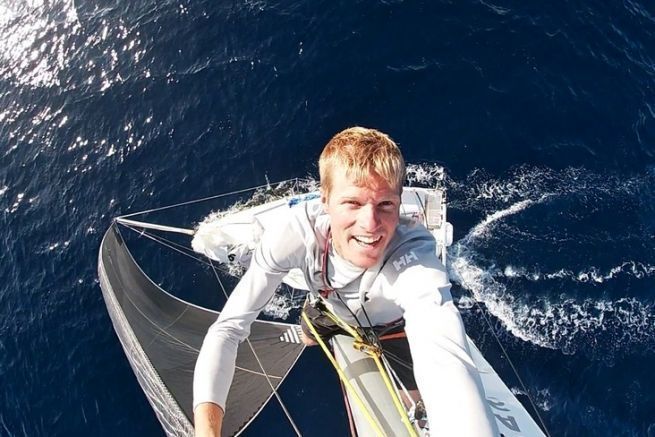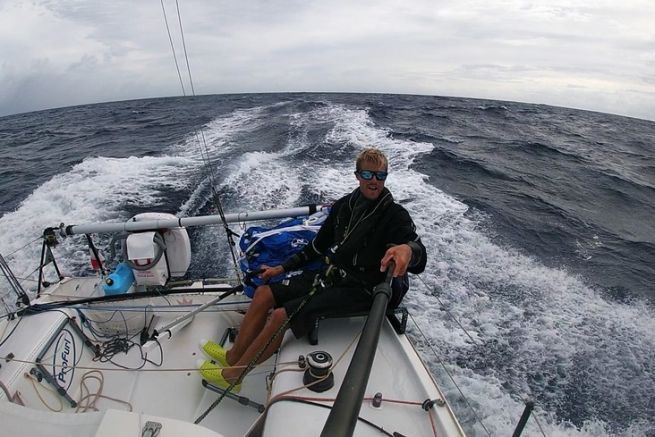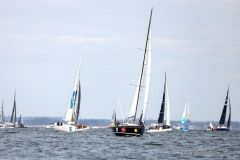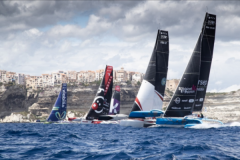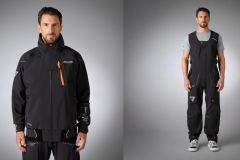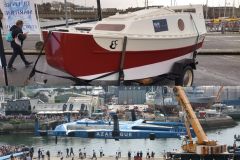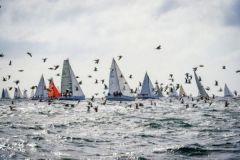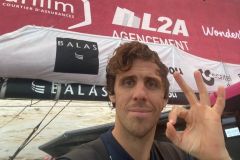Discovering the job of a préparateur in ocean racing
After a Mini Transat and a year spent at the electronics company B&G, Felix de Navacelle, naval architect and sailor, collaborated with David Raison for the development of the future IMOCA of Eric Bellion and Jean Le Cam. Before becoming the technical director of his friend skipper Tanguy Le Turquais for the Vendée Globe 2024, he made his first steps as a preparer with Nicolas Lunven and Banque Populaire, which leased Tanguy's future boat. He tells us about this discovery.
"I know Tanguy very well and with the aim of joining his project, I wanted to get my hands on his boat before the handover between Banque Populaire and Tanguy in July. I like to touch everything and get some fresh air. All the more so in a great team like this one" begins Felix de Navacelle.
"I am discovering this job even if I have already prepared my Mini. An IMOCA is different. It's exciting to alternate between the design office and field work. The preparation job requires a good knowledge of the field, of racing, but also of the boat. The systems must be functional and correspond to the ergonomics desired by the skipper. Each skipper has his own ergonomics" he details.
At Banque Populaire, the team of preparers includes 3 service providers, all supervised by Jean-Marc Fayer, a salaried technical director.
"He is the leader, the one who organizes our preparation and gives a list of tasks. There is no good preparation without preparation. The golden rule is that one week before the start of a race, we don't work on big optimization issues, except in case of problems. If it works, we don't touch it, Jean-Marc repeats. The best is the enemy of the good", laughs Felix.
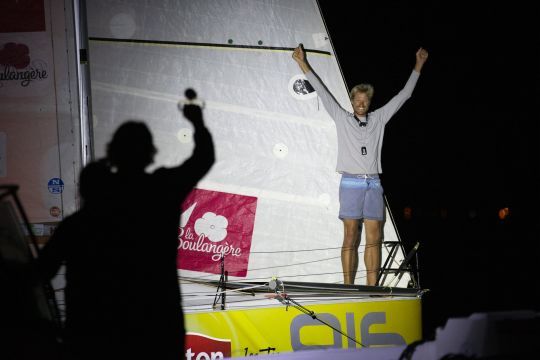
There are two main phases in the preparation profession
"The objective of the preparer is to make a boat functional and adapted to its skipper", analyses Felix de Navacelle. The preparation is divided into two main phases during the year:
The winter work site
"It's about working on the big repair and optimization projects: bow change, new foils, complete dismantling of the fittings, new helm seat, lengthening of the roof cap, general maintenance" says Felix.
The period of navigation of the boat
"The tasks are endless and hard to listeuros it could be adjusting the height of the footrest by half a centimeter, doing electronic calibration, mechanical adjustmenteuros There is always a lot of seamanship. You don't know what task you'll have to do the next day. On a return from sailing, we may have to readjust the winches, for example. What is important is to sail the boat. It's by using it that you see what you can do. On the pontoon, you want to make a "fancy" system, but once at sea you have to keep it simple. We avoid systems that are too aesthetic or non-functional. We share our experience between preparers, we work on how the skipper would like this or that system."
In the end, it all depends on the complexity of the boat. Banque Populaire is a simple boat that has been lucky enough to have been well debugged by Damien Seguin.
"There is always room for improvement in this sea of details. It all depends on the level of preparation or optimization desired. The cursor can be increased ad infinitum, but in view of the results of the race (editor's note: Nicolas Lunven is at the forefront of the Guyader Bermuda 1000 Race run in May 2022), the team work seems to be bearing fruit," laughs Felix.
If the last months were devoted to the launching of the boat, the 10 days preceding the race are devoted to minor works: adjustment of the knots, elastic of hydraulics, preparation of the spare bags (spare parts)euros
"We're working on systems that can't compromise performance. When we get back from the race, we'll see if there's any minor damage, like impacts on the daggerboard, winches to be recalibrated But we're not going to have a lot of time, as we only have 15 days before we reach Les Sables-d'Olonne for the Vendée Arctique."
The typical day of the preparer
In the morning, Jean-Marc Fayer launches a team briefing, lists the tasks and distributes them among the three preparers: Felix de Navacelle, Henri le Chartier euros who has a lot of expertise in euro preparation and the navigator Estelle Greck.
"It's really fun to have this common dynamic and sharing of experience. We divide the tasks and responsibilities. There's a good number of tasks that need to be done together, because it's a big, complex boat, even though ours is still pretty simple."
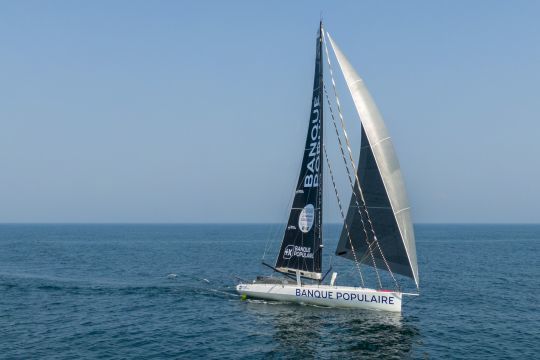
Alternate between the field and the design office
Naval architect is the profession of choice for Felix de Navacelle, but this jack-of-all-trades likes to vary his experiences: navigation, naval architecture, boat preparation
"All these assignments support and enrich each other. It's a pleasure to touch everything and not to be confined. I'm learning a lot about the maintenance of onboard systems. Often when you're behind your screen designing a boat, you want to do something complicated. But the best thing is to do something functional. And it works very well. As Tanguy often says to me, I'm on a training course to discover the job of a préparateur. I'm delighted with this initiation course. It brings me an experience and it revives the flame and the passion of each discipline. If I only did naval architecture, this flame would be extinguished. I would be disconnected from sailing. And sailing without keeping up with that part of development, innovation and creation would result in the same thing. Preparation is an intermediary between architecture and navigation. You get into the life of the boat, all the way to its use."
A flexible schedule
Depending on the ocean racing team, the préparateur is either an employee or a service provider. At Banque Populaire, they work on a freelance basis
"You have to be flexible and available when there's a big case. When you're hired on a freelance basis, you have some personal time off to do errands or something else. Next week we'll bring the boat back to Lorient to repair it and prepare it for the next stage. Depending on her condition, we won't necessarily need three of us. This way of working suits me because I have other projects on the side. It gives me a good flexibility in my working hours", concludes Felix de Navacelle.
